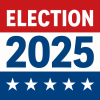From the Mayor: China’s Decision to No Longer Accept Recyclables Is Affecting Cities and Towns Across America

By Mary C. Marvin, Mayor, Village of Bronxville
Mar. 27, 2019: As the village discusses a sustainability plan in the context of our comprehensive plan rollout, in one aspect we are being thwarted by events far beyond our control. It is China’s decision to no longer provide a market for our recycled paper and plastic that has already had a major trickle-down effect.
After decades of public information campaigns, Americans were finally recycling – our village took on the cause in earnest and yearly we are one of the top three communities in the county, along with Scarsdale and Bedford, in the percentage of waste vs recycled materials.
But quite honestly, now much of that carefully sorted recycling nationwide is ending up in commingled trash. Waste management companies across the country are communicating that there is no longer a market for our recycling. As a result, municipalities are left with two choices: pay much higher rates to get rid of recyclables or throw it all away.
In a recent article in the Atlantic, the city manager of Franklin, New Hampshire, said, “We are doing our best to be environmentally responsible, but we can’t afford it.” When recycling first began in Franklin, they could break even by reselling at $6 per ton. Now the transfer station is charging the town $125 a ton to recycle or $68 a ton to incinerate. The incineration process has the added negative of releasing toxins into the air.
It is a nationwide problem. Broadway, Virginia, started recycling 22 years ago but suspended the entire program when costs went up by 63 percent. Communities trying to wait it out no longer have space to store mounds of recyclables in a healthy, environmentally friendly way. Philadelphia, one of our major cities, is now burning about half of its 1.5 million residents’ recycling material in an incinerator that converts waste to energy.
On the village level, we collect and dispose of approximately 2,150 tons of refuse at $28.87 per ton, or $62,000 a year. The waste and the recyclables are sent to the county's dual refuse station on the throughway entrance near Stew Leonard’s.
We also pay for the increased cost of recycling via a county tax levied through the Town of Eastchester tax bill. On our labor cost level, it takes eight public works employees to complete the task every Wednesday, which includes two staffers moved from the highway/road crews every week.
This feared “end” of recycling comes at a time when the United States is creating a record amount of waste. In 2015, the last year with verifiable data, Americans generated 262.4 million tons of waste, up 4.5 percent from 2010 and up 60 percent from 1985. This equates to nearly five pounds per person per day.
Close to home, New York City collected 934 tons of metal, plastic, and glass a day from residents last year, a whopping 33 percent increase in just five years.
Quite simply, it is now just cheaper to throw away an old, used, or broken product. I am old enough to remember having our toaster fixed at the local appliance shop, now a nonexistent trade.
But the true cost extends far beyond the Costco “bargain” price of replacement. When waste with an organic component sits in a landfill, it decomposes, emitting methane. Burning plastics create some energy but also produce carbon emissions, and many incineration facilities release more mercury and lead than do coal plants.
What do we do?
Even at our best, Americans were generally terrible at recycling. About 25 percent of what ends up in the blue bins is actually contaminated – wire hangers mixed with pizza boxes mixed with unwashed, congealed ketchup bottles. Sadly, the current economic environment makes it cost-prohibitive to “clean” recyclables. Some companies are now charging additional “contamination” fees, further adding to the overall costs. As a mayor said in the Atlantic article, “At what point do you feel like you’re spending more money than what it takes for people to feel good about recycling?”
Across Memphis, large commercial enterprises have had to stop recycling because of contamination problems. But the Memphis airport is keeping its recycling bins in place to preserve “the culture” of recycling among passengers and employees.
Right now, it is cheaper for most American manufacturing companies to use new rather than recycled supplies. It is only pennies' difference but they add up when millions of items are produced.
Bottom line, the best way to fix recycling is to buy less. The City of San Francisco, a leader in environmental initiatives, began an ad campaign to add a fourth “R” – reduce, reuse, recycle – and “refuse.” Top on their list is the proliferation of plastic bottles and straws. The city recently passed an ordinance requiring that 10 percent of all beverages sold be available in reusable containers.
Behemoth Amazon is trying to reduce waste by mailing products in the new blue-and-white plastic envelopes, but they, too, have proven hard to recycle.
Sadly, no one has yet to find the “answer,” but perhaps the best solution – the most logical and obvious one – is think before making a purchase.
Editor's note: As a public service, MyhometownBronxville publishes articles from local institutions, officeholders, and individuals. MyhometownBronxville does not fact-check statements therein, and any opinions expressed therein do not necessarily reflect the thinking of its staff.
Government & History Directory
Bronxville is a quaint village (one square mile) located just 16 miles north of midtown Manhattan (roughly 30 minutes on the train) and has a population of approximately 6,500. It is known as a premier community with an excellent public school (K-12) and easy access to Manhattan. Bronxville offers many amenities including an attractive business district, a hospital (Lawrence Hospital), public paddle and tennis courts, fine dining at local restaurants, two private country clubs and a community library.
While the earliest settlers of Bronxville date back to the first half of the 18th century, the history of the modern suburb of Bronxville began in 1890 when William Van Duzer Lawrence purchased a farm and commissioned the architect, William A. Bates, to design a planned community of houses for well-known artists and professionals that became a thriving art colony. This community, now called Lawrence Park, is listed on the National register of Historic Places and many of the homes still have artists’ studios. A neighborhood association within Lawrence Park called “The Hilltop Association” keeps this heritage alive with art shows and other events for neighbors.
Bronxville offers many charming neighborhoods as well as a variety of living options for residents including single family homes, town houses, cooperatives and condominiums. One of the chief benefits of living in “the village” is that your children can attend the Bronxville School.
The Bronxville postal zone (10708, known as “Bronxville PO”) includes the village of Bronxville as well as the Chester Heights section of Eastchester, parts of Tuckahoe and the Lawrence Park West, Cedar Knolls, Armour Villa and Longvale sections of Yonkers. Many of these areas have their own distinct character. For instance, the Armour Villa section has many historic homes and even has its own newsletter called “The Villa Voice” which reports on neighborhood news.
Link to Village of Bronxville One Square Mile Monthly Newsletter
Village of Bronxville Administrative Offices
337-6500
Open 9:00am - 4pm excluding holidays and weekends
Bronxville Police Department
337-0500
Open 24 hours
Bronxville Parking Violations
337-2024
Open 9:00am - 4pm excluding holidays and weekends
Bronxville Fire Deparment
793-6400

















